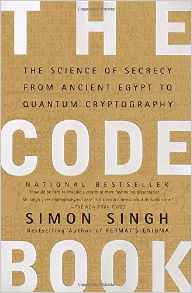the biggest gripe I have is with the first requirement for a license to be considered an open-source license...free redistribution. just check it out, the wordage clearly says anyone must be allowed to 'sell it or give it away...without having to pay a royalty fee or other fee to the original copyright owner.' so, while I've heard nothing but 'free as in freedom, not as in beer' from the OSI and its zealots, they've done what I can only see as a 180 on this?
what if I am the original developer of the software, and thereby the original copyright owner? if I sell my program, is that considered an 'other fee to the original copyright owner'? so my project won't be considered open-source if I sell it?
open-source was much more attractive and much easier to 'believe in' when it was that - open. now we're starting to put definitions and legal mumbo jumbo all over the place just like proprietary software. and to me, the biggest problem is still the viral nature of the licenses. and I still say that forcing a software distributor to distribute the source code is just as anti-freedom as forcing a software distributor to keep the source code closed.
some day we will either have to write or choose an open source license that will make sense for lamp5 and for web services. no license currently exists that adequately covers the distributed nature of web services (ie, web services that use each other are all derivative works...so must all the web services you use with an open-source web service be open-source?) and they way I see the 'official' open-source licensing body moving....they're more interested in keeping their dream-world alive than working on licenses that will allow open-source to thrive in the real world.
</div>







If within "newly published" you mean "published seven years ago", then yes.
>the biggest gripe I have is with the first requirement for a license to be considered an open-source license...free redistribution. ... while I've heard nothing but 'free as in freedom, not as in beer' from the OSI and its zealots, they've done what I can only see as a 180 on this?
If by "180" you mean "0", then yes. You have mistaken a permission for a requirement. If people are allowed to give X away for free, it does not mean they have to.
You can charge what you want for GPL software, whether you wrote it or not.
What you cannot do is make the buyer pay you additional fees whenever he or she makes/distributes additional copies. He/she can charge his/her buyers for those copies -- and in fact has all the rights that the GPL granted you.
This is open source software 101, and I think you should get familiar with it before calling OSI associates "zealots" and suggesting they live in a "dream-world"
Good place to start:
http://www.gnu.org/philosophy/selling.html